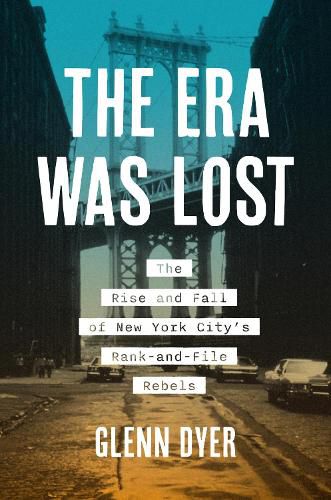Readings Newsletter
Become a Readings Member to make your shopping experience even easier.
Sign in or sign up for free!
You’re not far away from qualifying for FREE standard shipping within Australia
You’ve qualified for FREE standard shipping within Australia
The cart is loading…






An exciting yet relatively unknown episode in American labor history took place in New York City between 1965 and 1975. Rank-and-file members of numerous unions caught a ""strike fever"" as they challenged the entrenched power of some of the country's most powerful politicians, employers, and union leaders in a wave contract rejections, wildcat strikes, and electoral campaigns.
Workers in unions across New York wanted more than better contracts: they contested control of the work process, racism on the job, and workers' place in America's socioeconomic hierarchy while implicitly and explicitly demanding greater democratic control of their representative organizations and lives. Some initial challenges were effective and succeeded in delivering better contracts and unseating undemocratic leaders. However, those early successes were short-lived. Glenn Dyer traces the way workers were met with employer recalcitrance and union attacks that proved too powerful to organize against. In the face of this resistance, workers retreated into a survivalist attitude of accommodation and resignation, contributing to the decline of social democratic New York and working-class power in the city. Ultimately, as Dyer argues, the failures of the rank-and-file organizing efforts in New York City, which was the biggest center of organized labor in the country, shows how stunted workers' aspirations and numerous defeats not only uprooted the foundations of New York's uniquely social democratic polity but also ushered in a national era of increased working-class subservience that has resonance today.
$9.00 standard shipping within Australia
FREE standard shipping within Australia for orders over $100.00
Express & International shipping calculated at checkout
An exciting yet relatively unknown episode in American labor history took place in New York City between 1965 and 1975. Rank-and-file members of numerous unions caught a ""strike fever"" as they challenged the entrenched power of some of the country's most powerful politicians, employers, and union leaders in a wave contract rejections, wildcat strikes, and electoral campaigns.
Workers in unions across New York wanted more than better contracts: they contested control of the work process, racism on the job, and workers' place in America's socioeconomic hierarchy while implicitly and explicitly demanding greater democratic control of their representative organizations and lives. Some initial challenges were effective and succeeded in delivering better contracts and unseating undemocratic leaders. However, those early successes were short-lived. Glenn Dyer traces the way workers were met with employer recalcitrance and union attacks that proved too powerful to organize against. In the face of this resistance, workers retreated into a survivalist attitude of accommodation and resignation, contributing to the decline of social democratic New York and working-class power in the city. Ultimately, as Dyer argues, the failures of the rank-and-file organizing efforts in New York City, which was the biggest center of organized labor in the country, shows how stunted workers' aspirations and numerous defeats not only uprooted the foundations of New York's uniquely social democratic polity but also ushered in a national era of increased working-class subservience that has resonance today.